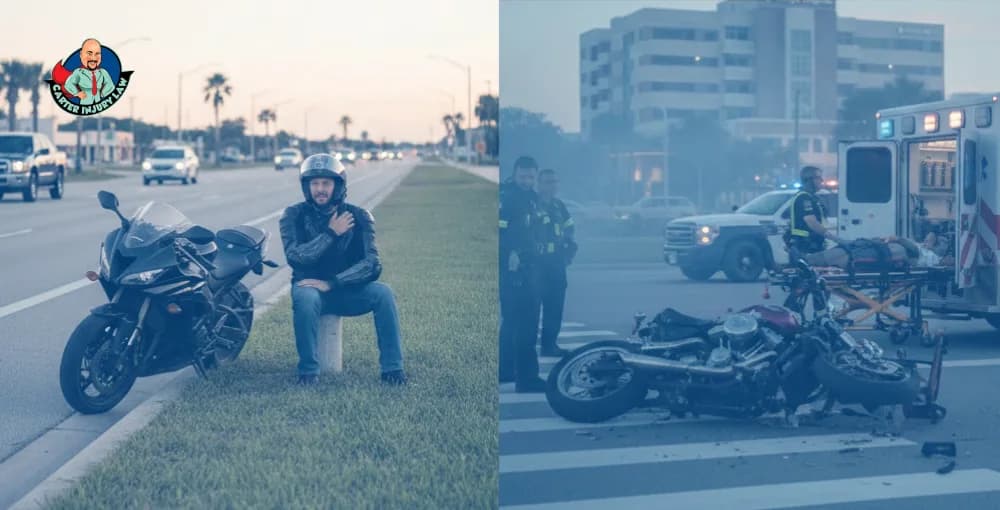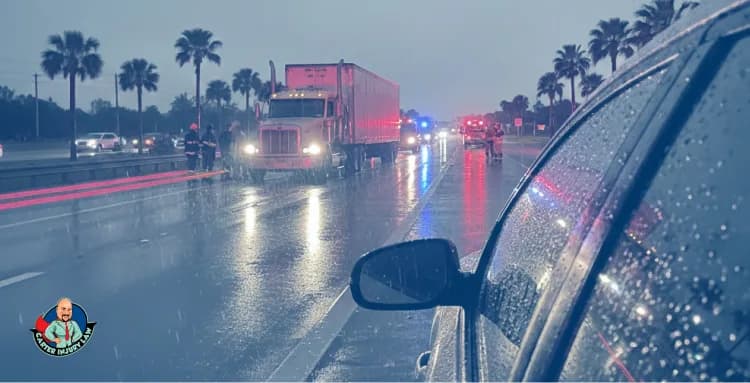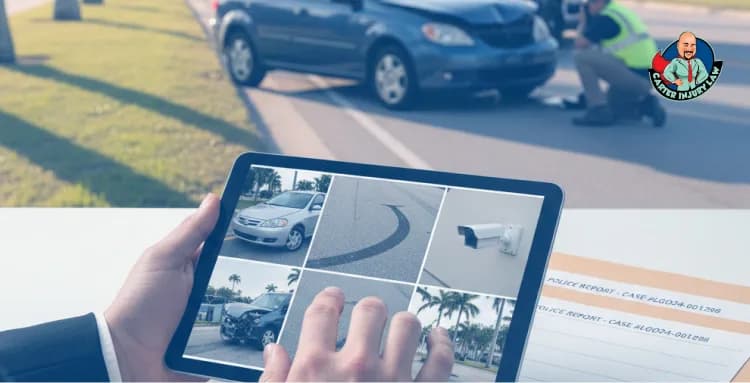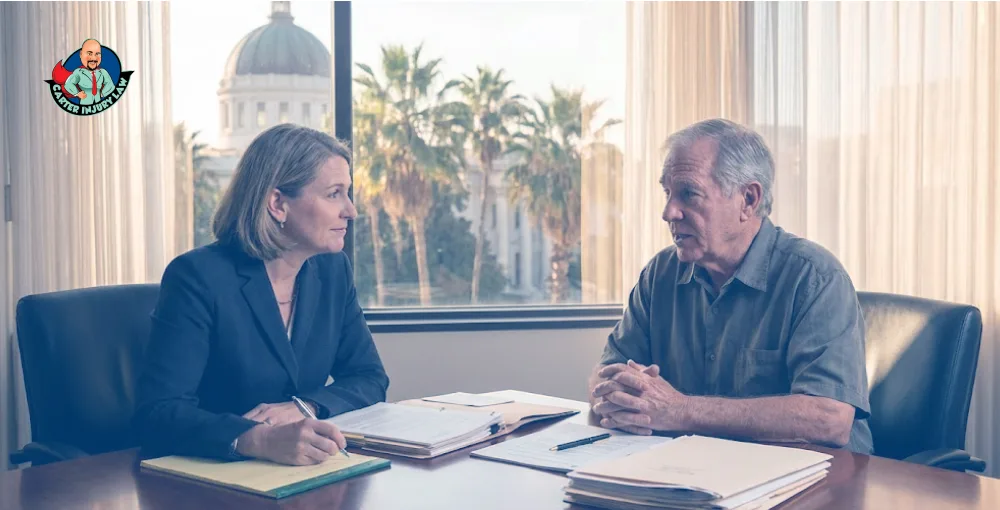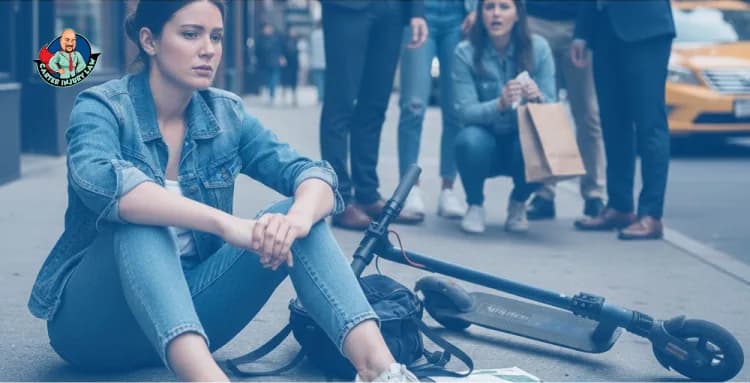You never expect it to happen. One moment your loved one is laughing over breakfast, steady on their feet, and the next, a simple misstep changes everything. Slip and fall accidents feel absurd in their suddenness, cruel in their randomness. They can happen in a grocery store, on a quiet staircase, or even in the familiar halls of home.
And when they do, they leave questions that twist through your mind long after the shock fades. Who was responsible? Could it have been prevented? And most haunting of all, what do you do when the person you love the most is gone, and the world expects you to carry on?
1) How a Simple Fall Becomes Something Life-Changing
Slip and fall accidents often get dismissed as clumsy mistakes or minor mishaps. The truth is far more serious. A simple fall can unleash devastating consequences on the human body, especially for older adults. Bones that once healed easily can shatter, and the brain, protected only by a thin skull, can suffer trauma that changes everything in an instant. If you’d like to hear it straight from David Carter at Carter Injury Law, here’s a short video
Among the most common outcomes are head injuries. A blow to the head can cause bleeding or swelling in the brain, sometimes leading to permanent disability or death. Spinal cord injuries are another devastating result, robbing victims of mobility and independence. Even when someone survives, the long road of medical care can strain families financially and emotionally.
For seniors, the risks are multiplied. A hip fracture can lead to complications that spiral quickly, including infections, reduced mobility, and long hospital stays. What seems like a fall that someone should be able to walk away from can instead set off a chain reaction that ends in tragedy.
And when that tragedy turns fatal, families are left searching for answers. However, the most important question still lingers in the shadows. Could this death have been prevented?
2) What Makes It a Wrongful Death Case
Not every fall leads to legal action, but when negligence is involved, the story changes. A slip or trip that results in death is no longer just an accident. It becomes a wrongful death case. That means the loss could have been avoided if the property owner had taken proper care.
Under Florida law, property owners have a duty to keep their spaces reasonably safe. This applies whether the property is a grocery store, an apartment complex, or even a private residence. When that duty is ignored, and someone pays the ultimate price, accountability follows.
Examples of negligence include:
A wet floor left unmarked with no warning sign
A broken step or railing that was never repaired
Poor lighting in stairwells or hallways
Hazards that owners knew about, or should have known about, but failed to address
This concept is called premises liability, and it does not discriminate. Businesses, landlords, homeowners, and in certain cases even government properties can all be held responsible.
The question remains: when a property owner fails in their duty and tragedy strikes, who has the right to step forward and demand justice? When lawyers talk about wrongful death from a fall, the legal concept at the center is called premises liability. At its core, it means property owners are responsible for keeping their property safe. If hazards are ignored and someone gets hurt, the law allows families to hold them accountable.
This liability does not stop at grocery stores. It extends to apartment complexes, private homes, hotels, and in some circumstances government-owned properties. The rule is simple: if a dangerous condition exists and the owner knew about it, or reasonably should have known about it, they have a duty to fix it. Failing to do so can create deadly consequences.
The Centers for Disease Control and Prevention reports that falls are the leading cause of injury-related deaths among adults 65 and older, with more than 36,000 fatalities recorded in 2020.
The National Floor Safety Institute notes that slip and falls account for over one million emergency room visits in the United States each year.
Numbers like these show that slip and falls are not freak accidents. They are predictable, preventable, and often tied to negligence.
So when a fall ends a life, the legal framework is clear. The next question becomes, who can actually step into the courtroom and make a claim?
4) Who Can Claim Justice
When a slip and fall leads to wrongful death, the law allows certain family members to take action. These cases are not filed on behalf of strangers or distant relatives, but by those most directly impacted by the loss. In Florida, that usually means a spouse, a child, or a parent. In some circumstances, other dependents or representatives of the estate may also have legal standing.
The compensation available is designed to ease both the financial and emotional weight that follows a sudden death. It is not a windfall, it is support meant to help families move forward after an avoidable tragedy.
Compensation may include:
Funeral and burial expenses
Medical bills related to the accident before death
Lost income or benefits that would have supported the family
Pain, suffering, and emotional loss for surviving loved ones
Each of these categories represents a piece of the story, the gap left behind when someone’s life is cut short by negligence. But for many families, pursuing justice is about more than money.
The bigger question is, how do you confront a culture that has painted slip and fall claims as nothing more than a punchline?
5) Why People Dismiss Slip and Falls and Why They Shouldn’t
Television and advertising have long turned slip and fall accidents into a joke. The trope is familiar, someone tosses water on the floor, stages a stumble, and then sues for a quick payout. That storyline has shaped public opinion for decades, and it has left many people skeptical whenever they hear about a slip and fall case.
But the reality is nothing like the punchline. These incidents can cause catastrophic injuries and, in the worst cases, death. Families dealing with the aftermath are not chasing easy money. They are facing hospital bills, funeral costs, lost income, and the emotional shock of losing someone they loved.
Wrongful death claims are not about revenge. They are about accountability, about making sure that property owners do not ignore hazards that put lives at risk. They are also about restoring some measure of stability for families who are suddenly left without the support they depended on.
Still, even with the truth on their side, families face another obstacle. The law gives them only a narrow window to act, and once that time runs out, the chance for justice disappears. But how long do they really have?
6) Acting Fast Saves Your Case
The law in Florida places a strict time limit on filing wrongful death claims tied to negligence. Families have two years from the date of death to bring a case forward. On paper, that might sound like plenty of time. In practice, it is far less. Every day that passes makes it harder to gather the proof needed to hold a property owner accountable.
Building a strong case is not just about filing paperwork. It is about investigation, preservation, and documentation. Lawyers move quickly because evidence has a way of disappearing. Surveillance footage gets erased. Witnesses forget details. Property owners fix the hazard and deny it was ever there. Acting fast is the difference between a case with weight and a case with holes.
Steps that must be taken include:
Sending preservation letters to secure key evidence
Obtaining and reviewing surveillance footage before it is deleted
Interviewing witnesses while memories are still fresh
Documenting the scene and the hazard before conditions change
Families already burdened with grief are not expected to handle these steps on their own. That is where experienced legal teams step in, protecting the case before time runs out.
But what about the cost? After all, taking on a legal battle while facing funeral bills and lost income might feel impossible. Or is it?
7) Support Without Upfront Costs
Facing a wrongful death claim can feel overwhelming. Families are grieving, processing medical bills, funeral arrangements, and the sudden loss of support. Adding legal fees to the mix often feels impossible. That is why Carter Injury Law works on a contingency basis. You do not pay anything upfront. You only pay if the case is won.
This approach allows families to focus on healing instead of worrying about mounting legal costs. Every step of the process is explained clearly and honestly, with no pressure to make hasty decisions. The goal is to provide support, guidance, and advocacy during one of the most difficult times of a person’s life.
Carter Injury Law offers:
Free consultations to discuss your options
Step-by-step guidance through the investigation and legal process
Representation focused on accountability and fair compensation
A team that listens and answers questions with compassion
Your family has already been through enough. The law exists to protect your rights and give you the chance to hold negligent parties accountable. With the right team by your side, you can focus on grieving, while we focus on securing the justice your loved one deserves.




